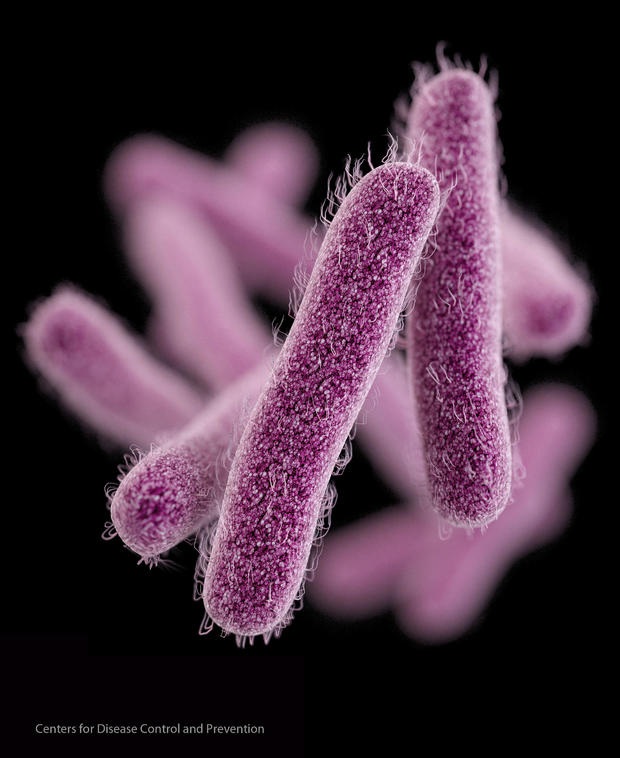CDC warns about drug-resistant Shigella bacteria, stomach bug deemed “serious public health threat”
[ad_1]
The Centers for Disease Control and Prevention says it is tracking a rise in stomach illnesses caused by infections with “extensively drug-resistant” bacteria that leave doctors with few antibiotic options to treat patients. The CDC warns it now poses a “serious public health threat.”
Over the past few years, the CDC says there are signs the percentage of Shigella bacteria cases that are resistant to a broad swath of antibiotics has begun to climb steeply around the country. These strains can also spread their resistance genes to other stomach bugs.
Analyses of these bacteria, dubbed XDR Shigella, have shown resistance to all of the typically recommended frontline antibiotic treatments for bacteria: azithromycin, ciprofloxacin, ceftriaxone, trimethoprim-sulfamethoxazole, and ampicillin.
Outbreaks of Shigella bacteria often spread through contaminated food and water, via surfaces, or through sex. Symptoms of the disease it causes, a form of dysentery named shigellosis, include fever and diarrhea.
Many shigellosis cases resolve with rest and hydration. But especially without treatment, more severe cases can result in hospitalizations and death. The bacteria is estimated to rank among the leading causes of death linked to diarrhea around the world.
The CDC’s alert comes after a 2015 warning by the agency that multidrug-resistant Shigella had first begun to spread to the U.S. from Americans who had traveled abroad.
The CDC says 5% of all Shigella isolates collected in 2022 were classified XDR, up from 1% in 2019.
“Given these potentially serious public health concerns, CDC asks healthcare professionals to be vigilant about suspecting and reporting cases of XDR Shigella infection to their local or state health department and educating patients and communities at increased risk about prevention and transmission,” the agency said in an alert Friday.
As recently as last month, authorities had warned of an outbreak of hundreds of shigellosis cases in travelers returning from resorts in Cabo Verde across the U.S. and Europe. Last year, the United Kingdom had also reported “an unusually high number” of XDR shigellosis around the country.
Some state and local health authorities in the U.S. have also warned of cases in recent months, urging people to wash their hands and take other steps to avoid getting sick.
“We typically see Shigella cases peak in the summer months and decline in the fall and winter. However, Shigella activity increased in Fall 2022, and we are now seeing some antibiotic-resistant cases, which are confirmed via antibiotic susceptibility testing,” Brian Spencer, a spokesperson for Colorado’s Department of Public Health and Environment, said in a statement.
/ AP
Spencer said cases have now slowed so far this year. However, authorities expect cases could again climb in the coming months. Colorado’s cases have not been linked to the Cabo Verde outbreak.
“CDPHE identified several outbreaks and clusters of cases that were related to each other,” Spencer said.
It is not clear what is driving the recent and out-of-season increases in drug-resistant Shigella infections.
A CDC spokesperson did not respond to a request for comment about recent cases.
The agency’s alert cites studies from 2012 and 2016 observing an increase in drug-resistant infections “particularly among people experiencing homelessness, international travelers, immunocompromised people, and MSM,” using an acronym for men who have sex with men.
More about the increase is expected to be discussed Tuesday, when the agency plans to host a webinar for clinicians on the spread of XDR Shigella.
“Clinicians should understand the nuances of testing and managing infections, especially when treating patients from populations at increased risk of drug-resistant shigellosis including,” the agency says.
[ad_2]
Source link











